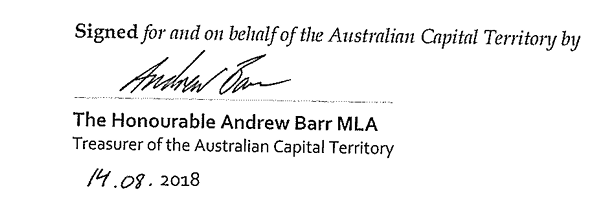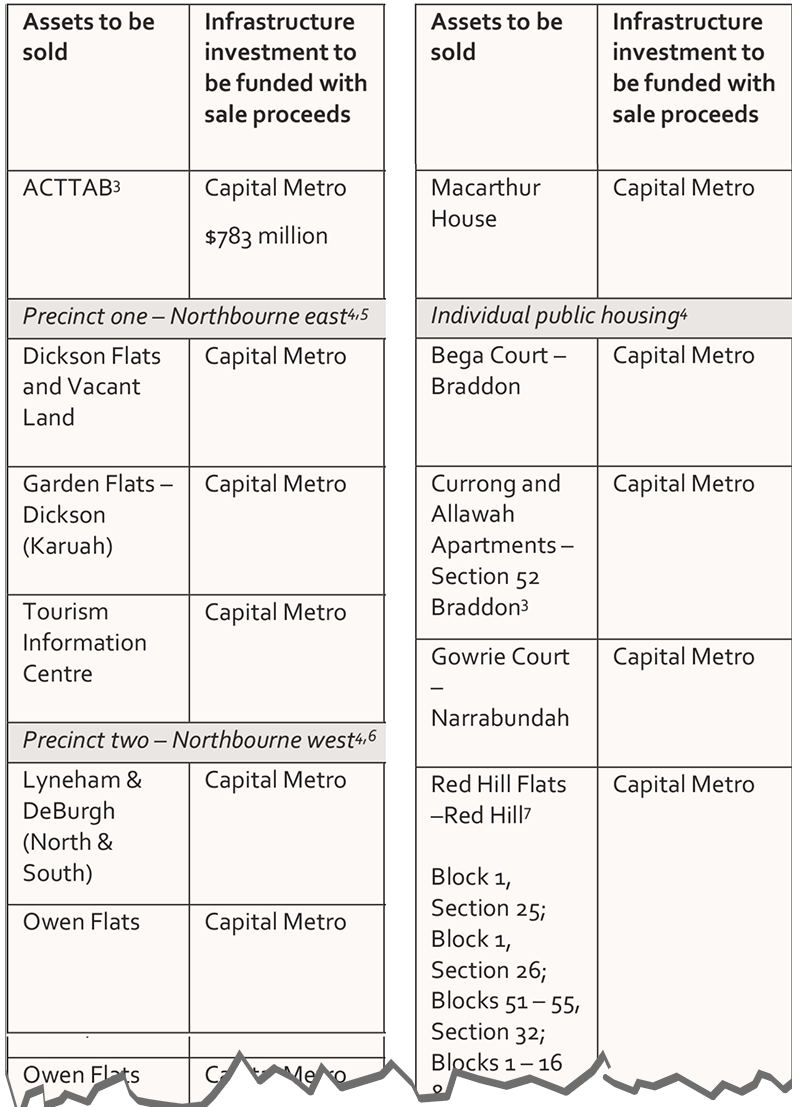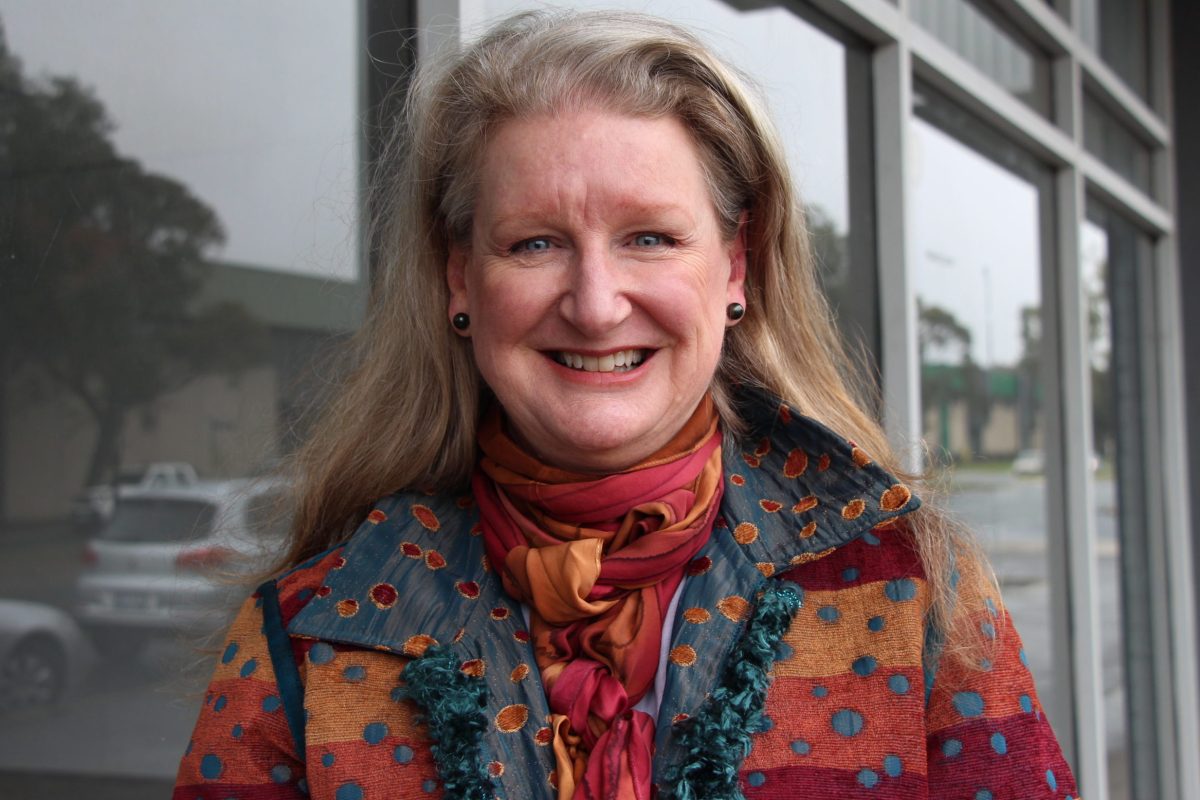
Confused? The ACT government pledged to the Commonwealth that cash from public housing land sales was going to fund light rail. The housing minister says, no they didn’t. The chief minister’s signature says otherwise. JON STANHOPE and KHALID AHMED know which one’s right.

IN recent weeks we have provided comment on competing claims by the ACT government and the opposition about the level of investment by the government in public housing.

We had thought we had said enough on the issue, but our attention has been drawn to the response of an “ACT government spokesperson” to a query by local radio station 2CC about our articles on the public housing renewal program.
The spokesperson asserted that we were “incorrect” and offered the following as proof:
- The government had delivered 1200 renewed public homes.
- No funding was redirected from the Public Housing Renewal Project to light rail.
- The Commonwealth provided $67.14 million as a contribution to Light Rail under the National Partnership Agreement on Asset Recycling (ARI).
Our earlier articles were in response to claims made by Liberal leader Elizabeth Lee and housing spokesperson Mark Parton that the government had not delivered on promises to invest up to $700 million in public housing, and the response by Housing Minister Yvette Berry to those claims with an assertion that the Public Housing Renewal Program was funded from the Asset Recycling Initiative.
The Minister also advised that public-housing dwellings were purchased by other ACT government directorates and transferred as assets to Housing ACT as opposed to being purchased through the direct appropriation of funds.
In our articles, we pointed out that under the renewal program, while assets worth $457 million were transferred into public housing, the government had taken land from Housing ACT, in prime development sites, with a book value of $222 million.
The net increase of $235 million in public housing assets was, therefore, clearly not only far short of the promised $700 million, but the government has also not disclosed the full financial returns it received from the sale and development of the land taken from Housing ACT.
We also noted that Berry’s claim that the Public Housing Renewal Program was funded through the Asset Recycling Initiative was inconsistent with the repeated disclosure, in ACT Budget papers from 2015-16 to 2018-19, that the proceeds of the ARI were spent on Light Rail – Stage 1.
Surely Minister Berry and the government spokesperson are not suggesting that the Budget papers are wrong.
They are, notably, not audited, but their veracity is usually accepted based on the generally acknowledged professionalism of Treasury and its historic (and hopefully continuing) ability to withstand political interference, as well as through public scrutiny by the Legislative Assembly and the media.
Indeed, based on the evidence we have presented, unless the information in the audited financial statements is incorrect, the government’s claim on, for example, Page 188 of 2017-18 Budget Paper 3 that “…total investment in the Public Housing Renewal Program will be $608 million” must also be wrong as must the claimed investments in the preceding years’ Budgets that take the total to $699 million.
In summary, the ACT government has via the Minister for Housing, a spokesperson for the minister, a government spokesperson, and through serial Budget papers made the following categorical claims:
- No funding was redirected from the Renewal Project to Light Rail
- Housing renewal was funded by asset recycling.
- The proceeds of asset recycling will be directed towards light rail.
Clearly these statements cannot all be correct.
In any event it is simply irrefutable that all proceeds of the asset recycling initiative, which included the sale of masses of public housing land, were spent on light rail.
As we noted previously, in 2015, the ACT entered into a National Partnership Agreement with the Commonwealth under which certain specified assets were to be sold by the ACT government to the market with the proceeds of the sales to be applied to purposes agreed by the Commonwealth. In return the Commonwealth committed to pay to the ACT a bonus equal to 15 per cent of the proceeds of the assets sold.
The “Schedule to the Agreement” signed in 2018 by Andrew Barr, as ACT Treasurer, and the then Commonwealth Treasurer Josh Frydenberg lists the assets which the ACT government agreed to sell off. Apart from assets such as ACTTAB and the Dickson Motor Registry, the following public housing assets were nominated: Dickson Flats, Garden Flats (Dickson), Lyneham Flats, Owen Flats, Northbourne Flats (Braddon and Turner), Bega Court (Braddon), Currong and Allawah Apartments (Braddon), Gowrie Court (Narrabundah), Red Hill Flats, Strathgordon Court (Lyons), and Stuart Flats (Griffith).
The ACT government further committed, under the terms of the agreement (see columns 2 and 4 of the schedule) to apply all proceeds of all sales of all the nominated assets to Capital Metro, ie light rail.
In the event that the full proceeds of the sale of the public housing listed in the National Partnership Agreement were not, as some people associated with the ACT government seem to be suggesting, applied to the construction and operation of light rail then the government has, presumably, breached the agreement.
A final note, the claim by the government “spokesperson” that the government delivered more than 1200 renewed public housing homes is also incorrect. The audited financial statements reveal that the number is in fact 1,194 against the 1,288 disposed of through the Light Rail investment program – a net loss of 194 dwellings.
The “Australian Capital Territory Asset Sales and Projects National Partnership Agreement on Asset Recycling” can be read here: federalfinancialrelations.gov.au/sites/federalfinancialrelations.gov.au/files/2021-01/asset_recycling_initiative_act-v2.pdf
Jon Stanhope is a former chief minister of the ACT and Dr Khalid Ahmed a former senior ACT Treasury official.
Who can be trusted?
In a world of spin and confusion, there’s never been a more important time to support independent journalism in Canberra.
If you trust our work online and want to enforce the power of independent voices, I invite you to make a small contribution.
Every dollar of support is invested back into our journalism to help keep citynews.com.au strong and free.
Thank you,
Ian Meikle, editor




Leave a Reply